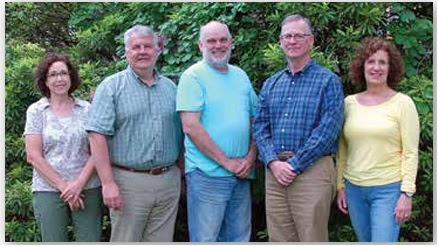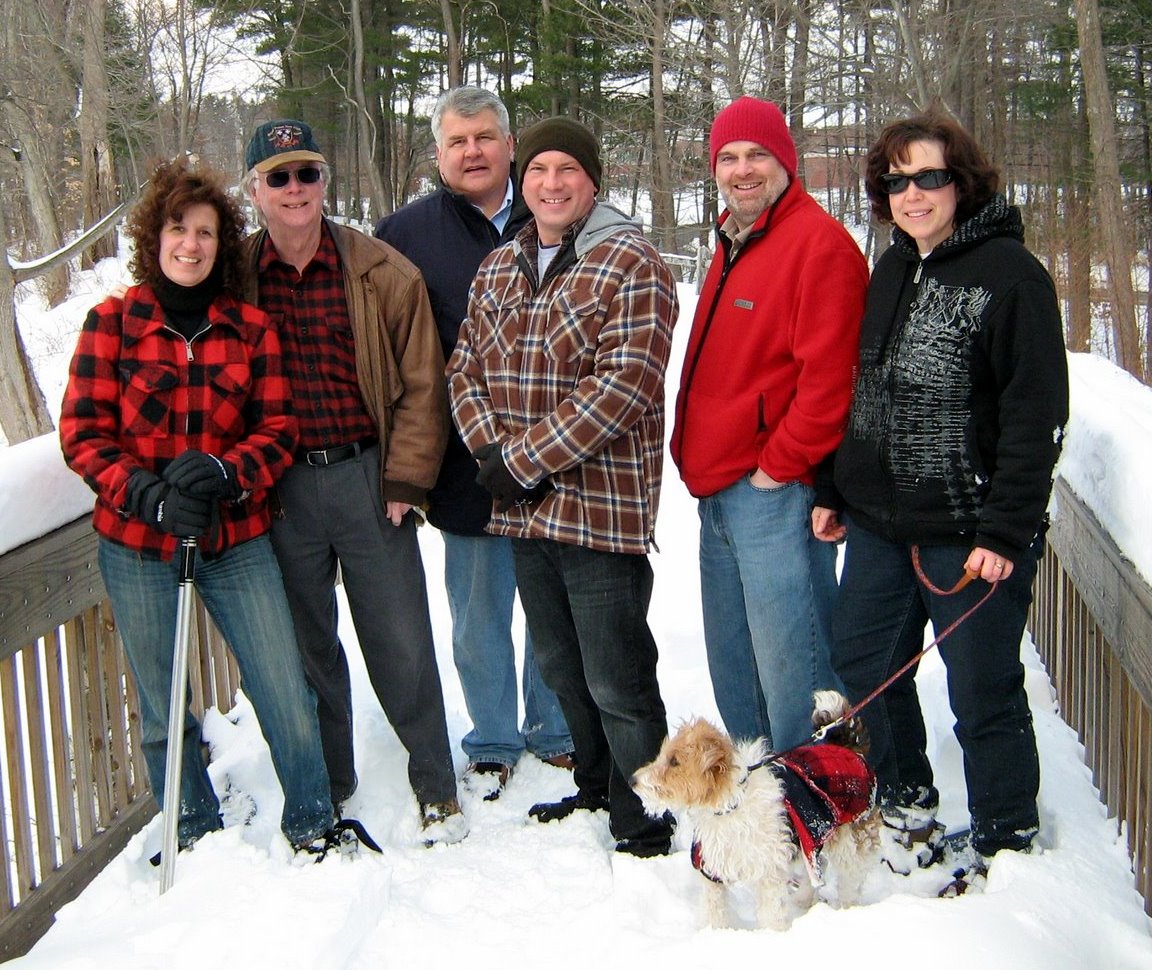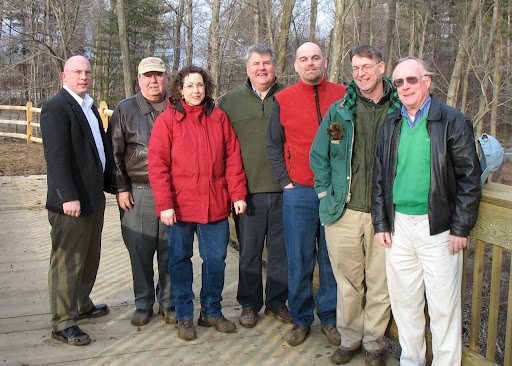The Conservation Commissioners all have email for sending and receiving messages. It is a mandatory communication tool to function in the 21st century. Email:
- Efficiently communicates text messages, pictures, video, and sound - avoiding postage, printing, and recording cost to user and recipient.
- Is not geographically dependent. A user can be at work in NYC, on vacation overseas, or at home in Shelton. The cost is the same.
- Is not time dependent. A user can retrieve or review messages during work hours, late at night, or on weekends. It promotes efficient use of time.
- A message sent to a recipient list that is a quorom of a public agency constitutes a "meeting" and is subject to the FOI regs.
- FOI regulations in part require advance posted notice of a meeting, the ability to attend a meeting, and the ability to review the minutes of a meeting.
- The FOI Commission for Ct. proposed a draft ruling in 2004 after several years of delays. They have yet to make any declarative ruling on the issue and judge complaints on a case by case basis.
The Conservation Commission believes in open government. We have never had a Freedom of Information complaint. We are making use of a beta process as a trailblazing method of how our mandatory need to use email can reconcile with the FOI regs.
- There are free internet services that provide an automated method to "post" or "publish" messages of a group sent via email on webpages of the internet. The service reviewed and tested by the Commission will have messages received by the service posted within 10 seconds, and archived indefinately. This "groups" service creates a "virtual" arena for holding an email meeting publicly. NOTE: This satisfies the need to have minutes of an email meeting.
- The "groups" service provider has an additional "alerts" service which will send a notice to any communication device when new messages are added to the "groups" service. NOTE: This satisfies the need to allow public attendance of an email meeting. It should be noted that depending upon when a commissioner reads emails mirrored through the "groups" service, the public may be reading content before a Commissioner does.
- Internet access is becoming widespread, either via home, work or public facilities such as libraries. Additionally phone devices are becoming connected to the internet. The "groups" service requires no registration by those who want to view messages and/or discussions. The messages within the "groups" service are available for research through major search engines. NOTE: This satisfies public accessibility to the "virtual meeting"
To satisfy the concerns expressed in the FOI draft regulations, and still allow Commissioner use of the email communication tool, the following policy is being adopted effective Sept6th.
- The Conservation Commission considers email communications amongst a quorom of members that discuss or may generate discussion of Commission work to be a "virtual meeting". Discussion is not restricted to messages that receive replies, it includes messages sent by a member as a simple statement regarding Commission activities to a quorom of members without expectation of a reply.
- The Conservation Commission will publish "virtual meeting" content in a timely, accessible, and archived state using the groups service of google. Our groups address is -http://groups.google.com/group/sheltoncc
- Only Commissioners can join our group created within the group service offered by google. Membership then allows, and it is the responsibility of each member to ensure, posting of messages related to Conservation business that is intended to reach a quorom.
- The service allows public viewing in real-time of posted messages without registration or cost. It does not allow public comment via posting of messages which is restricted to members only.
- The group service can provide alerts to users who have interest in timely notification of when new messages are posted within our group. This alerts service can be customized to be any message within the group, or any messages related to a specific subject matter within the group. This alert service can be sent to multiple types of electronic devices. Instructions for setting an "alert service" are provided at www.groups.google.com
- There is inability to determine the time at which a Commssioner as a member of the group may read a message that created a "virtual meeting". In fact, public via the previously mentioned alerts service may view a message before a commissioner sees it. This time-shifting for a "virtual meeting" creates an inability to have uniform and timely review of a discussion as in a physical meeting. As such, while the FOI rules may view a "quorom" that eventually reads messages as creating a "meeting", not everyone is "attending" at the same time. Because of this virtual nature, no motions or actions can be made at a virtual meeting. The groups service is not a chat room type service where all are present at the same time.
- Each agenda of the Conservation Commission will bring attention to the fact that "virtual meetings" via emails may occur from time to time and that they should be considered "special meetings". It will also be noted for the City Clerk to post details regarding these vitual meetings in order to meet legal posting requirements of "special meetings".



No comments:
Post a Comment